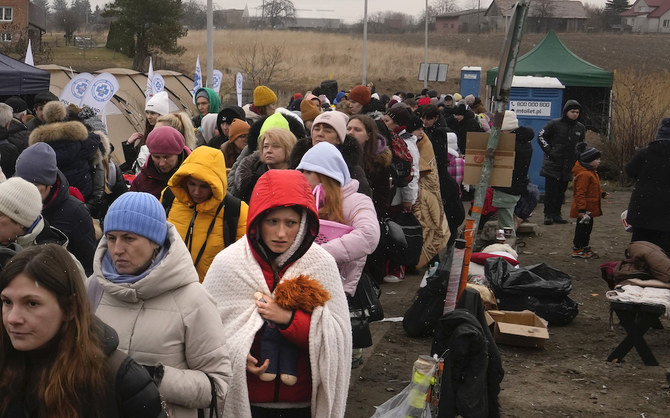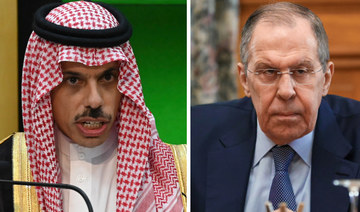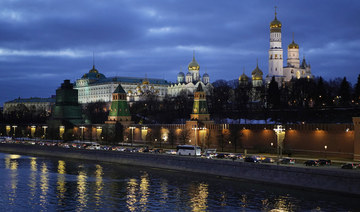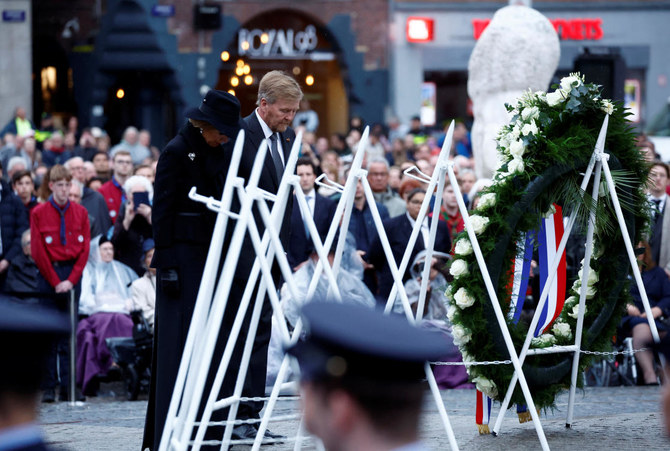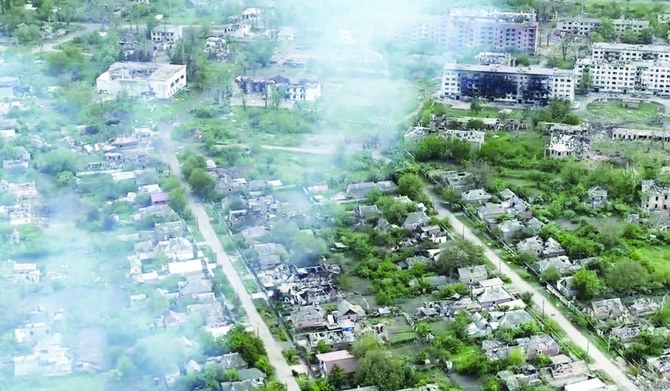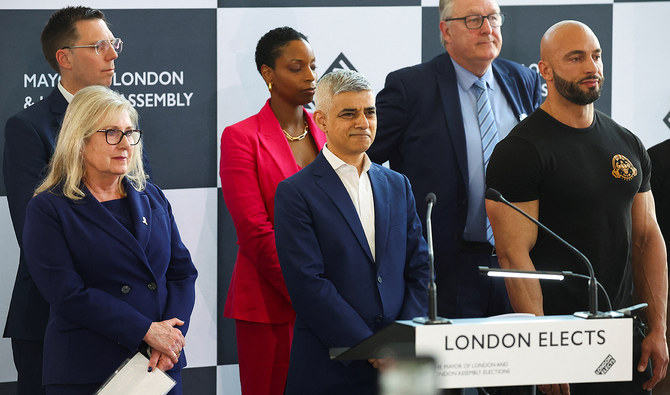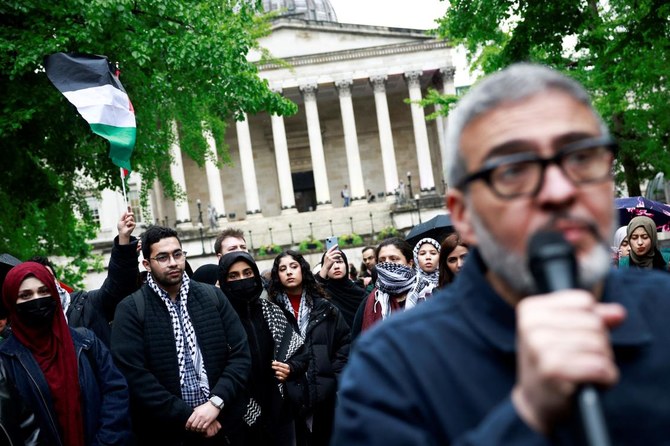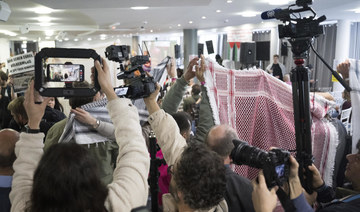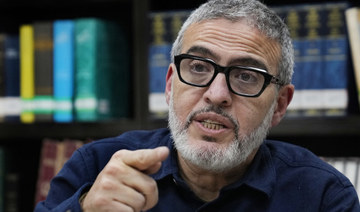KYIV: Officials in the Ukrainian port city of Mariupol, which is surrounded by Russian forces, said they were delaying an evacuation of the civilian population, accusing Moscow's troops of breaking a ceasefire.
“Due to the fact that the Russian side does not adhere to the ceasefire and has continued shelling both of Mariupol itself and its environs and for security reasons, the evacuation of the civilian population has been postponed,” city officials said in a statement on social media.
Mariupol, a southern city of about 450,000 people on the Azov Sea, was scheduled to begin the evacuations at 0900 GMT, after Russian forces agreed a ceasefire to allow civilians to leave the fighting.
“We ask all Mariupol residents to disperse and head to places where they can shelter. More information about the evacuation will be posted soon,” municipal officials wrote.
“At the moment, negotiations are underway with Russia to establish a ceasefire and ensure a safe humanitarian corridor,” the statement added.
Earlier, the Russian Defense Ministry said in a statement that it had agreed on evacuation routes with Ukrainian forces to allow civilians to leave the strategic port of Mariupol in the southeast and the eastern town of Volnovakha “from 10 a.m. Moscow time” (8 a.m. GMT.) The vaguely worded statement did not make clear how long the routes would remain open.
A top official in Mariupol said the cease-fire there is to last until 4 p.m. (2 p.m. GMT) and an evacuation along a humanitarian corridor would begin at 11 a.m. (9 a.m. GMT.) Pavlo Kirilenko, head of the Donetsk military-civil administration that includes Mariupol, said the humanitarian corridor would extend from the city to Zaporizhzhia.
The head of Ukraine’s security council, Oleksiy Danilov, had called on Russia to create humanitarian corridors to allow children, women and the older adults to get away from the fighting, calling such corridors “question No. 1.”
As Russian forces batter strategic locations, Ukrainian President Volodymyr Zelenskyy has lashed out at NATO for refusing to impose a no-fly zone over his country, warning that “all the people who die from this day forward will also die because of you.”
NATO said a no-fly zone could provoke widespread war in Europe with nuclear-armed Russia. But as the United States and other NATO members send weapons for Kyiv and more than 1 million refugees spill through the continent, the conflict is already drawing in countries far beyond Ukraine’s borders.
Russia continues to crack down on independent media reporting on the war, also blocking Facebook and Twitter, and more outlets say they are pausing their work inside the country.
And in a warning of a hunger crisis yet to come, the UN World Food Program says millions of people inside Ukraine, a major global wheat supplier, will need food aid “immediately.”
Ukraine’s president was set to brief US senators on Saturday by video conference as Congress considers a request for $10 billion in emergency funding for humanitarian aid and security needs.
In a bitter and emotional speech late Friday, Zelenskyy criticized NATO over the lack of a no-fly zone, saying it will fully untie Russia’s hands as it escalates its air attack.
“The alliance has given the green light to the bombing of Ukrainian cities and villages,” he said, warning that “the history of Europe will remember this forever.”
NATO Secretary General Jens Stoltenberg earlier in the day ruled out the possibility of a no-fly zone, saying NATO planes would have to shoot down Russian aircraft. A no-fly zone would bar all unauthorized aircraft from flying over Ukraine.
In a separate video message to antiwar protesters in several European cities, Zelenskyy continued to appeal for help. “If we fall, you will fall,” he said.
The UN Security Council scheduled an open meeting for Monday on the worsening humanitarian situation. The United Nations estimates that 12 million people in Ukraine and 4 million fleeing to neighboring countries in the coming months will need humanitarian aid.
Russian forces did not make significant progress Friday in their offensive to sever Ukraine’s access to the Black Sea and the Sea of Azov, which would deal a severe blow to the country’s economy. There were also no changes in the north and the east, where the Russian offensive has met fierce Ukrainian resistance.
While a vast Russian armored column threatening Ukraine’s capital remained stalled outside Kyiv, Russian President Vladimir Putin’s military has launched hundreds of missiles and artillery attacks on cities and other sites across the country.
Ukrainian presidential adviser Oleksiy Arestovich said battles involving airstrikes and artillery continued northwest of Kyiv, and the northeastern cities of Kharkiv and Okhtyrka came under heavy fire.
He said Ukrainian forces still held the northern city of Chernihiv and the southern city of Mykolaiv. Ukrainian artillery also defended Ukraine’s biggest port city, Odesa, from repeated attempts by Russian ships, he said.
More than 840 children have been wounded in the war, and 28 have been killed, according to Ukraine’s government. A total of 331 civilians had been confirmed killed, but the true number is probably much higher, the UN human rights office said.
Kyiv’s central train station remained crowded with people desperate to flee the capital. “People just want to live,” one woman, Ksenia, said.




